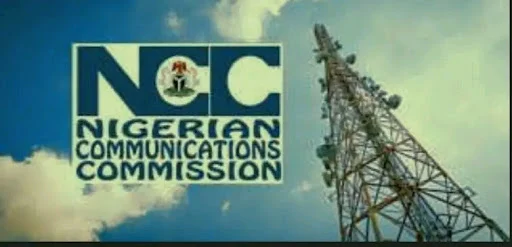The National Civil Society Council of Nigeria (NCSCN) has suspended its scheduled protest after meeting with the Nigerian Communications Commission (NCC).
The protest was against the 50 per cent increase in telecom tariffs and the suspension was announced during a press briefing in Abuja on Monday.
Following the federal government’s approval of the tariff hike, the NCSCN has revealed a mass protest at the NCC headquarters and the National Assembly.
Sharing an update, NCSCN Executive Director, Blessing Akinlosotu disclosed that detailed presentations, economic assessments and operational data provided during the meeting with the NCC resulted in a re-evaluation of the situation.
“After the tense and robust engagement with the Management of NCC, we further set up a 5-man Technical Committee to carefully study documents presented to us and asked the Committee to do a clinical and forensic examination of available records of operational costs and annual profit margins of some major Telecom Service Providers in Nigeria, with critical assessments of Financial Statements.
“Our findings were very interesting and call for a serious review of the position and planned line of action,” he stated.
The committee’s findings revealed that telecom operators had not increased tariffs since 2013 despite inflation and harsh economic conditions.
The cost of electricity and diesel has risen sharply, significantly impacting network operations.
Security challenges, particularly the vandalism of telecom infrastructure, have placed additional financial strain on service providers.
The devaluation of the naira and fluctuations in foreign exchange rates have also contributed to rising costs, making it more expensive to import telecom equipment.
The NCC has mandated service quality improvements, requiring telecom providers to upgrade infrastructure to enhance network efficiency and ensure better service delivery.
Akinlosotu stated that while Nigerians are battling severe economic hardship, telecom companies are also struggling to maintain operations due to increasing costs.
The Council also appealed to the Federal Government to declare a state of emergency in the energy sector, citing the high cost of electricity and fuel as major factors driving up telecom costs.
It further called on the government to implement policies aimed at strengthening the naira and stabilising foreign exchange rates to reduce the cost of doing business.
After reviewing the evidence, the NCSCN announced the cancellation of its planned protest, urging its members to shield their “swords for now, as we call off the planned Protest.
“Let us accept the painful and bitter realities being faced in the Operational Cost by Service Providers and allow for this understandable Tariff Adjustment.”

